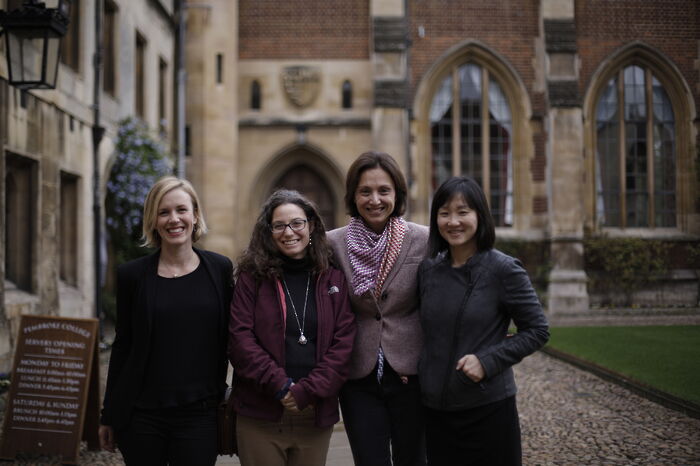The trials and triumphs of Cambridge’s first female scientists
Newnham’s Old Labs gave women an unprecedented opportunity to study science, writes Thea Elvin

For many years, studying science at Cambridge offered a vastly different experience for men and women, and indeed to those studying science at other red brick universities. Women studying at these newly founded institutions were enrolling at the same time as their male counterparts, whereas at Oxbridge they were aliens in a system firmly rooted in tradition.
A turning point in the acceptance of women at the University came with the creation of college science laboratories. Although these institutions were segregated and, as an anonymous female student stated in 1913, a constant reminder of “the fact they are not merely students but also female ones”, their foundation was a leap forward in scientific equality at Cambridge.
Built in 1879 “a respectful distance” from the residential buildings, Newnham’s Old Labs were originally intended for the study of chemistry, but for five years were used to study a variety of scientific disciplines when women were denied access to all the main University labs. Despite winning this hard fought liberty, the space in which women carried out their experiments and studied practical science was by no means ideal. One student in 1880 recalls “raw days in the laboratory, barely tempered by a little grate fire in one corner”. Equipment and chemicals, now easily taken for granted, were difficult for the Newnham scientists to obtain, having to be bought or borrowed under “the strictest economy”.
"The Old Labs opened up a world of wonder for many young female scientists"
Work in the Old Labs was not all hardship though and, as many undergraduates find today, it was the demonstrators who helped instigate a fascination with science in their students. One such demonstrator was Ida Freund, who taught chemistry in the Old Labs for almost 30 years. Instantly recognisable not only for her strong Austrian accent and wooden leg (she had lost her leg in a cycling accident), she was famed for her “special study” classes, held before Tripos exams, which involved a periodic table made from cupcakes and chocolates depicting famous chemists.
As the University gradually moved towards gender equality, so women’s opportunities grew. In 1881, women were allowed to sit Tripos exams and the need for more space in which to study practical elements of the course led to the creation of the Balfour Biological Laboratory in an abandoned chapel in Downing Place. The laboratory was campaigned for and funded by Emily Davis and Eleanor Sidgwick (née Balfour), and used by Newnham and Girton. A student of 1909 remembers carrying out practical work here and in the Newnham Old Labs during her first year, joining male students in the University Chemical Laboratory in her second year and, by third year, working closely alongside twelve male counterparts and laboratory staff in the Physiological Laboratory.
By the end of the first world war, women were well integrated into the main University science laboratories and Newnham’s Old Labs were no longer required for teaching purposes. Today they are used as a music and drama space, with one fume hood left in the entrance to serve as a reminder of their past.
For many of the women who undertook study in the Old Labs, this was their first experience of practical science. The freedom to carry out their own scientific experiments represented huge progress towards equality in science and holds an important place in Cambridge’s scientific history. Above all, in allowing women a place to practice science, the Old Labs opened up a world of wonder for many young female scientists, as is summed up by a Newnhamite of 1880: “Chemistry is great fun and I did some splendid experiments”.
 Interviews / You don’t need to peak at Cambridge, says Robin Harding31 December 2025
Interviews / You don’t need to peak at Cambridge, says Robin Harding31 December 2025 News / Unions protest handling of redundancies at Epidemiology Unit30 December 2025
News / Unions protest handling of redundancies at Epidemiology Unit30 December 2025 Comment / What happened to men at Cambridge?31 December 2025
Comment / What happened to men at Cambridge?31 December 2025 Features / ‘Treated like we’re incompetent’: ents officers on college micromanagement30 December 2025
Features / ‘Treated like we’re incompetent’: ents officers on college micromanagement30 December 2025 Theatre / We should be filming ADC productions31 December 2025
Theatre / We should be filming ADC productions31 December 2025








